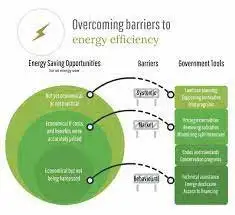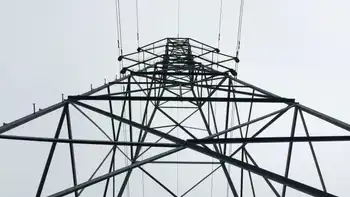Exelon unveils solar plans for Chicago south side
"It's a way to start participating in renewable energy," said Tom O'Neill, Exelon's senior vice president of generation development. "Ultimately, we are putting 10 megawatts of electricity on the grid. It's not much. But you've got to start somewhere."
Solar power won't replace coal power plants anytime soon. The unaffiliated coal-fired Crawford plant in Chicago has a capacity that is 50 times greater than the Exelon solar project, which would be constructed only if the company qualifies for federal Energy Department loan guarantees.
America gets about one-ten-thousandth of its electricity from the sun, according to the Energy Department. There's room for growth.
But reducing the price of solar panels to a competitive level is the challenge. To produce the same amount of electricity, solar panels are four times more expensive than building a natural gas plant; and three times more expensive than a nuclear plant, according to recent analysis by Moody's Investor Service, the debt ratings agency.
Still, utilities are pushing forward with solar projects, figuring the price tags could drop as solar power becomes more popular.
Whenever the number of solar panel installations doubles, the associated costs drop by 20 percent, said Ken Zweibel, director of the Institute for Analysis of Solar Energy at George Washington University. On average, installations double every 30 months.
"As the size of market increases, manufacturers can ramp up production and drive down cost," said Julia Hamm, executive director of the Solar Electric Power Association.
Orders are streaming in. Florida Power & Light Co. said this month that $350 million worth of solar panels could meet the electricity needs of a planned city there. Pacific Gas and Electric Co. announced in February a program to develop up to 500 megawatts of solar power for northern and central California.
New Jersey also has a sunny outlook on solar power. Its Public Service Electric and Gas Co. proposed in February a $773 million project to install solar panels on streetlights and public schools, among other locations. Due to federal tax credits and state incentives, the average PSE&G residential bill of $1,270 a year would increase by about $4 if officials approve the project.
The advantage of solar power is panels do not have to be clustered in one location, unlike a nuclear, gas or coal plant. Exelon would install 32,800 panels on a 39-acre former industrial site in Chicago's West Pullman neighborhood, the largest project in a U.S. urban center.
The SunPower Corp.-made panels would track the sun's path, maximizing exposure. Gray Chicago skies should not be an obstacle, said Julie Blunden, vice president of public policy for SunPower.
"Chicago has better sun than Germany," Blunden said. "And Germany is the largest solar market in the world today."
The economic stimulus package made funds available for more solar power projects. The Energy Department can guarantee the loans used to pay for construction. So Exelon can explore renewable energy, even though the parent of Chicago utility Commonwealth Edison Co. has staked its future on expanding its fleet of 17 nuclear reactors.
"We're a nuclear company," said O'Neill. "But we know which way the wind blows, no pun intended. Nothing is off the table."
Related News

Military Is Ramping Up Preparation For Major U.S. Power Grid Hack
WASHINGTON - The U.S. Department of Defense is growing increasingly concerned about hackers taking down our power grid and crippling the nation, which is why the Pentagon has created a $77-million security plan that it hopes will be up and running by 2020.
The U.S. power grid is threatened every few days. While these physical and cyber attacks have never led to wide-scale outages, attacks are getting more sophisticated. According to a 494-page report released by the Department of Energy in January, the nation’s grid “faces imminent danger from cyber attacks.” Such a major, sweeping attack could threaten “U.S. lifeline networks,…





